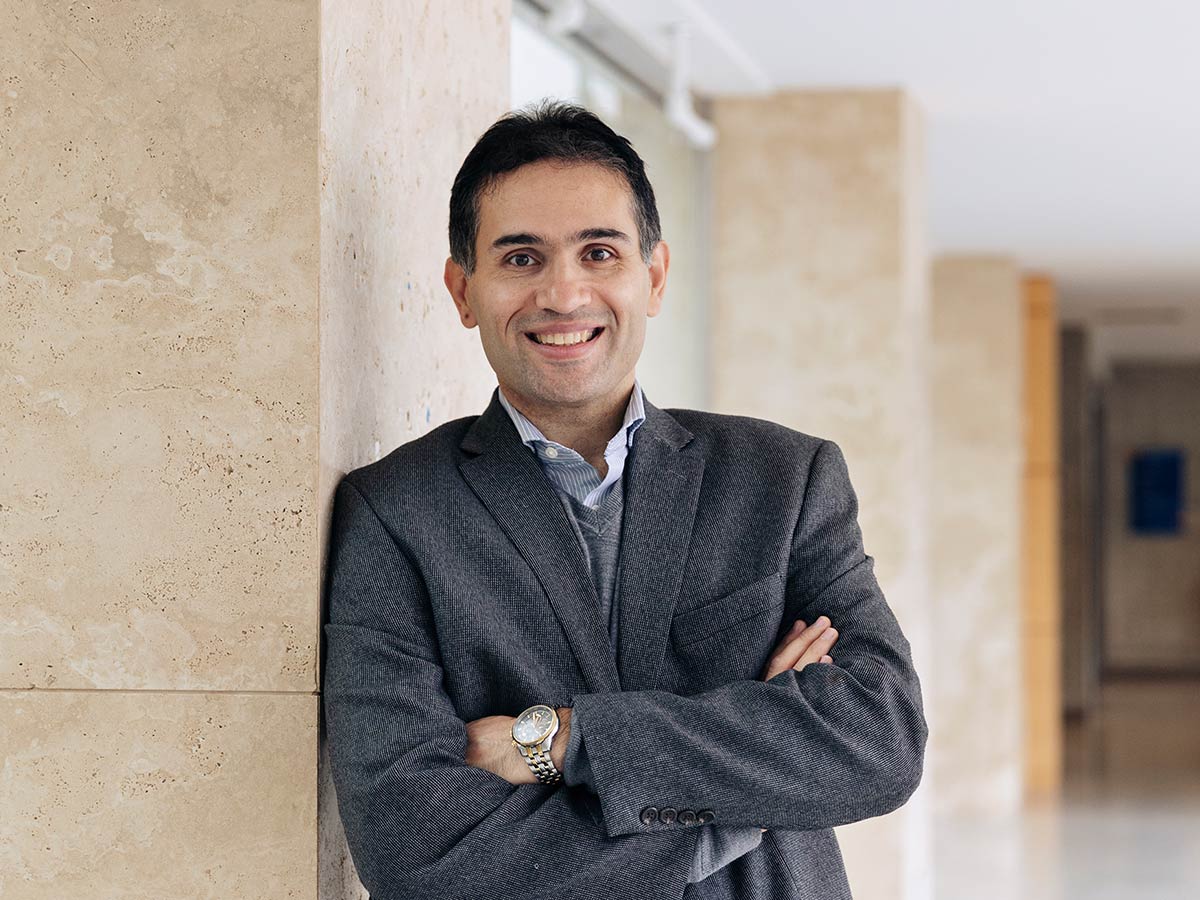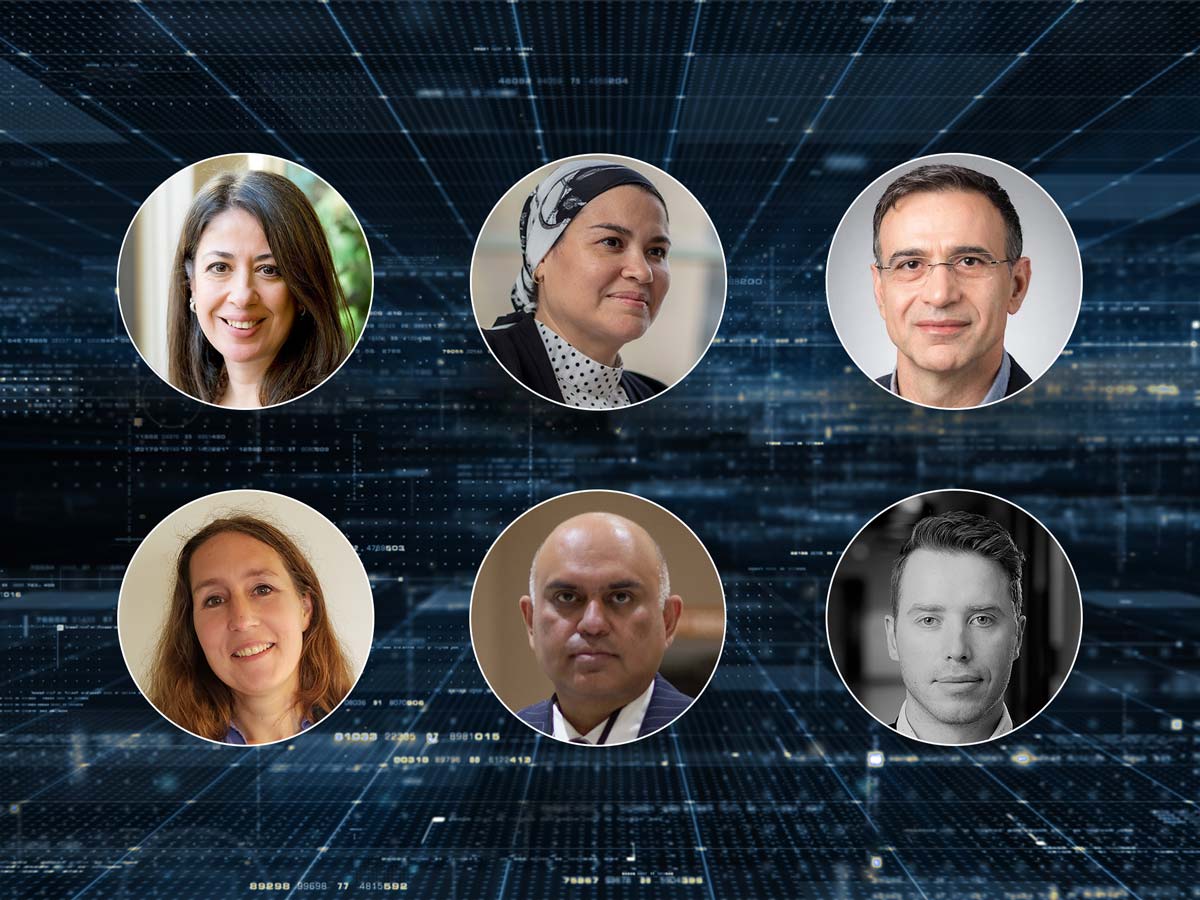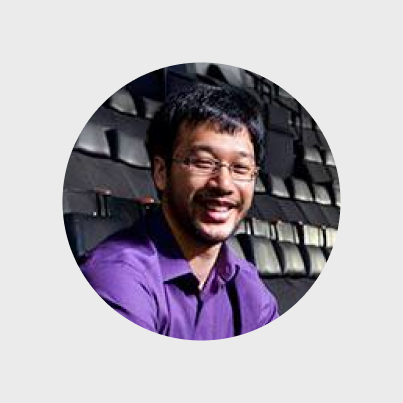Electrical & Computer Engineering Graduate Program
What makes this program different?
From smartphones to power systems, our electrical and computer engineering grad students gain mastery of the communications and multimedia, electric drives, energy and computer systems that drive our interconnected and intelligent world.
Degree
PhD, MASc, MEng
Department
Electrical, Computer, and Biomedical Engineering
Fee range
Domestic $9,626.06 - $11,194.34
Options:
FT & PT options, AI concentration, 5 specializations, International Double Degree
International research and professional development options
Pursue a career conducting groundbreaking research through our MASc (Master of Applied Science), or elevate your professional expertise through our course-based MEng. Students can also choose to travel abroad with an international double degree!
Change the world alongside some of Canada’s leading experts.
Collaborate with researchers across our interdisciplinary graduate community and learn from Canada Research Chairs, lab founders, and the heads of internationally-renowned associations.
Sophisticated, state-of-the art facilities
From autonomous vehicles to robotic arms that support risky surgeries, TMU provides access to 21 specialized labs so students learn at the centre of advanced ideas and future-forward research.
Choose expert credentials in Artificial Intelligence
Explore the inner workings of AI-driven systems, analyze state-of-the-art AI techniques and learn how to apply them in a range of disciplines.

Explore your journey
PhD
Ideal for engineers with a master’s degree who want to pursue a career in academia or a professional research career.
MASc
Ideal for engineers with an undergraduate degree who want to pursue a specific research area or idea.
MEng
Ideal for engineers with an undergraduate degree who want to elevate their credentials and increase their job market opportunities.
MEng with AI concentration:
Ideal for engineers who prefer course-based learning, and have an interest in AI techniques that can be applied to a range of engineering disciplines.
| PHD | MASc & MEng | MEng with AI |
|---|---|---|
Grade requirements:
|
Grade requirements:
|
Grade requirements:
|
Application requirements:
|
Application requirements:
|
Application requirements:
|
Courses offered in any of our fields of study explore a diversity of topics from intelligent systems and advanced data engineering to power electronics and digital communications. Whether you’re in a research-intensive program or pursuing professional development, students benefit from full-scale equipment, the latest technology and faculty with the right combination of expertise to prepare students for exciting careers.
AI Concentration Courses
Recognized by the Vector Institute (external link) , the AI concentration consists of four core courses, Intelligent Systems, Neural Networks, Deep Learning and Advanced Data Engineering. Interdisciplinary electives related to energy, sustainability, computer networks, digital media and urban development also provide students with the technical training and ethical awareness to make a meaningful impact in the field of AI.
Students excel in this program in part because of the opportunity to conceptualize, develop and test a prototype solution for a real-world problem. Completed in teams of two to three students, working directly with professors and industry partners, students benefit from department-led training in teamwork, collaboration and conflict resolution — essential skills for success in the workforce.
Visit the graduate calendar for full course descriptions and see which courses are offered this academic year.
| PhD | MASc | MEng |
|---|---|---|
|
|
|
Grade requirements: If a course mark is less than B- (2.67/4.33 or 70%) for both MEng and MASc, and less than B (3.00/4.33 or 73%) for PhD, you must repeat the course or alternate with another. Failure to maintain an acceptable academic standing could result in your being asked to withdraw from the program. Failure in more than one course will be considered grounds for dismissal.

Enrich your learning through research, labs & community
Explore our electrical and computer-focused labs, and choose from five specializations or our dynamic concentration in AI.
Where electrical and computer engineering meet anatomy and physiology, biomedical engineering is the interdisciplinary study of technology in health care. Exploring human-computer interaction, telemedicine, biomedical signal analysis, bioinformatics, medical instrumentation and computer vision, research within this field leads to new and innovative breakthroughs in pathology, diagnosis, treatment and rehabilitation.
Through our state-of-the-art labs and facilities, faculty and students partner with leading clinicians from Sunnybrook Hospital and St. Michael’s Hospital’s Institute for Biomedical Engineering, Science and Technology (iBEST), making the most impact on patient care.
Research Areas:
- 3D printing
- Artificial neural networks
- Bioinformatics, signal modelling and analysis
- Biomechanics, prosthetic devices and assistive technologies
- Biomedical implants, textile computing and wearable technology
- Integrated biomedical sensors and transducers
- Machine vision image-guided surgery
- Medical imaging, image analytics and machine learning
- Medical robotics and image-guided surgery and therapy
- Musculoskeletal biomechanics and mechanobiology
- Tissue engineering and regenerative medicine
Research Laboratories and Facilities:
- Biomedical Signal and Image Processing Lab (BSIPL)
- Biophotonics and Bioengineering Laboratory
- Image Analysis in Medicine Lab (IAMLAB)
- Image Guided Therapy Lab
- Maternal Fetal Imaging (MFI) Lab
- Optimization Problems Research and Applications Laboratory (OPR-AL)
Information is everywhere — how it gets transmitted is where technology comes into play. In the era of the Internet of Things (IoT), communications research is tasked with staying ahead of the technological curve. Encompassing digital signal processing, mobile and wireless communications, optical communications and computer communications, research in this field helps autonomous vehicles avoid collision, increases data storage and computing power via cloud computing, and improves functionality of digital communications through 5G networking.
Research Areas:
- 5G networking and the Internet of Things (IoT)
- Analog-to-digital data converters and mixed-mode circuits and systems for passive wireless microsystems
- Cognitive radio systems and dynamic spectrum management
- Intelligent antenna and radio systems
- Microwave engineering
- Network architecture, design, optimization and security
- Optical communications and visible light communications
- Radio resource management
- Wireless communications
- Wireless positioning sensor networking
Research Laboratories and Facilities:
- Communications and Signal Processing Applications Laboratory (CASPAL)
- Microwaves and Antennas Laboratory (MA-Lab)
- Optimization Problems Research and Applications Laboratory (OPR-AL)
- TMU Communication Lab
- Wireless Networking and Communication Research (WINCORE) Lab (external link)
Merging engineering with computer science, this field focuses on the integration of hardware and software systems. Advancing the capabilities of computer systems, our researchers apply their work to fields including robotics, artificial intelligence, aerospace, multimedia and manufacturing. Subfields include distributed software systems, embedded systems, computer vision, reconfigurable computers, memory architectures and field-programmable gate array (FPGA) design, as well as micro-electromechanical system (MEMS) circuits, analog and digital integrated circuits, mixed-mode circuits and very large-scale integration (VLSI) circuits for optical and wireless communications.
Research Areas:
- Computer architecture and hardware
- Distributed systems and cloud computing
- Fault tolerance and security
- Heterogeneous computing
- Parallel computing
- Reconfigurable and adaptive computer systems
- Software engineering, coding and computer programming
- System-on-chip design and synthesis
Research Laboratories and Facilities:
- Embedded Reconfigurable Systems Laboratory
- Optimization Problems Research and Applications Laboratory (OPR-AL)
- Microsystems Research Laboratory (MSRLab)
- Laboratory for Systems, Software and Semantics (LS3)
This field of engineering applies automatic controls to the design, implementation and integration of electric drives and energy systems. Power and control systems research is leading the charge against climate change through renewables, smart loads and energy storage technologies. Modernizing the build and management of electricity delivery systems means distributors are better equipped to detect and restore outages and to integrate more renewables, and users can manage electricity consumption more efficiently.
Research Areas:
- Advanced manufacturing and robotics
- Control of robotics manipulators
- Electrical and renewable energy systems
- Electricity generation, transmission and storage
- Electromagnetics
- Embedded control systems
- Linear and nonlinear programming
- Power electronics and medium-voltage drives
- Power system stability, security and protection
- Cyber-physical security of smart grids
- Wireless power transmission
- Electric vehicle charging technology
- High-power converters and AC drives
- Predictive control of energy conversion systems
Research Laboratories and Facilities:
- Laboratory for Electric Drive Applications and Research (LEDAR)
- NSERC Energy Storage Technology Network
- Schneider Electric Smart Grid Laboratory
Whether it’s a noise you hear, an image you see or an electromagnetic wave that’s invisible to the naked eye, signals are all around us. Exploring communication systems, digital signal processing, mobile and wireless communication systems, and telemedicine, signal processing and multimedia is at the heart of some of the most prevalent topics in technology today — from big data to augmented reality to machine learning.
Research Areas:
- Audio and multimedia signal processing
- Augmented and virtual reality
- Big data analytics, management and data science
- Computer vision and modelling
- Data denoising and compression
- Information retrieval and semantic technologies
- Language and sensory perception
- Machine learning and artificial intelligence
- Multimedia content analysis
- Statistical signal processing
Research Laboratories and Facilities:
- Communications and Signal Processing Applications Laboratory (CASPAL)
- Computer Vision and Image Processing Laboratory (CVIP)
- Dependable Adaptive Systems Group (DAS)
- TMU Multimedia Research Laboratory
- Signal Analysis Research Group
The concentration on Artificial Intelligence is a focused program of study consisting of four core courses and various interdisciplinary electives. Graduates will receive a Master of Engineering degree in Electrical and Computer Engineering.
Upon completion of the program, you will be able to contribute solutions to many of industry and society’s greatest challenges. Specifically, you will gain a deep understanding of:
- Foundational aspects of machine learning, from data mining to statistical pattern recognition, including the core techniques in supervised and unsupervised classification.
- Theoretical foundations and practical applications of artificial neural networks, including various forms of representation, training and evaluation.
- State-of-the-art techniques in the area of deep learning, including deep convolutional neural networks, recurrent neural networks and deep belief networks.
- Actual applications of machine learning and statistical pattern recognition, including use cases in audio and video processing and natural language processing.
- How big data needs to be modelled, stored and retrieved within the context of distributed computing using MapReduce, Hadoop, Spark, NoSQL technology and distributed stream-processing techniques.
- How to develop scalable and distributed data management platforms that are essential for large-scale data analytics and machine learning projects; and,
- Inherent biases of machine learning algorithms, algorithmic fairness, as well as accountability and transparency in AI systems.
Through tools, facilities, mentors and access to industry opportunities, our researchers, like those in the examples below, are focusing their talents, following their passions and making significant and sought-after research breakthroughs.

Led by Dr. Ebrahim Bagheri, the NSERC Responsible AI program is a training initiative to help build sustainable connections, research, and knowledge capacity in AI ethics, privacy-enhanced analytics, and AI accountability.

Working with TMU’s Rogers Cybersecure Catalyst, Dr. Rasha Kashef has been developing models for improving the robustness of recommendation systems using advances in adversarial machine learning.
Student life:
Whether you’re looking to join a student group, advocate for your peers in student government, challenge yourself and others at our graduate symposium, or just looking for support, we encourage you to make the best of your experience at TMU.
Grad student life
International Double Degree: Through partnerships with universities in Germany and Poland, grad students in electrical and computer engineering can gain international experience, learn a new language and earn two master’s degrees simultaneously through this double degree program.

What does an electrical & computer engineering graduate do?
Career possibilities
Electrical and computer engineering graduates find there are endless opportunities where the skills gained from their degree are responding to urgent demands. Many of our graduates go on to rewarding careers designing, developing, and improving software and hardware, developing and testing the latest uses and impacts for artificial intelligence, improving telecommunications systems and more. From machine learning engineers and data scientists to R&D engineers and Big Data architects, there is a breadth of rewarding careers placing graduates at the centre of an in-demand industry.
Possible employers:
- AMD
- Apple
- Deloitte
- IBM
- Microsoft
- Sun Life Financial
- Telus
- Tesla
- +More

SANDEEP KALER
“Research at Toronto Metropolitan University has placed me at the center of placed interesting and engaging industry projects that make an impact.”
Electrical Engineering (BEng) ’16, (MASc) ’19, (PhD) ’23

Raymond Phan
Senior Computer Vision Research Scientist, Electronic Arts (EA)
“TMU mixes research and theory and also show you some practical sides of research too, so that’s like the best of both worlds in one university and one program. I feel lucky to be part of an institution that emphasizes the practical side of engineering.”
Computer Engineering (BEng) ʼ06, (MASc) ʼ08, (PhD) ʼ13
Funding & awards for electrical and computer engineering students
With numerous scholarships and awards available for graduate students, particular to each person’s circumstance, we are helping students meet the financial demands of higher education.
The Aditya JHa Diversity Graduate Scholarship recognizes academic achievements in graduate studies, and provides financial assistance to one full-time grad student in electrical and computer engineering. Special consideration is given to Indigenous peoples, persons with disabilities, visible minorities and women. One award of approximately $2,300 is presented annually during a celebratory lunch in April.
The Vector Scholarship in Artificial Intelligence supports students admitted to AI-related master's programs in Ontario. To find out how and when to apply please visit "The Vector Scholarship in Artificial Intelligence (external link, opens in new window) " website.
